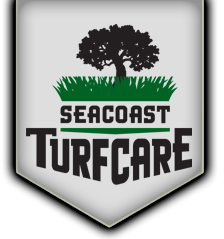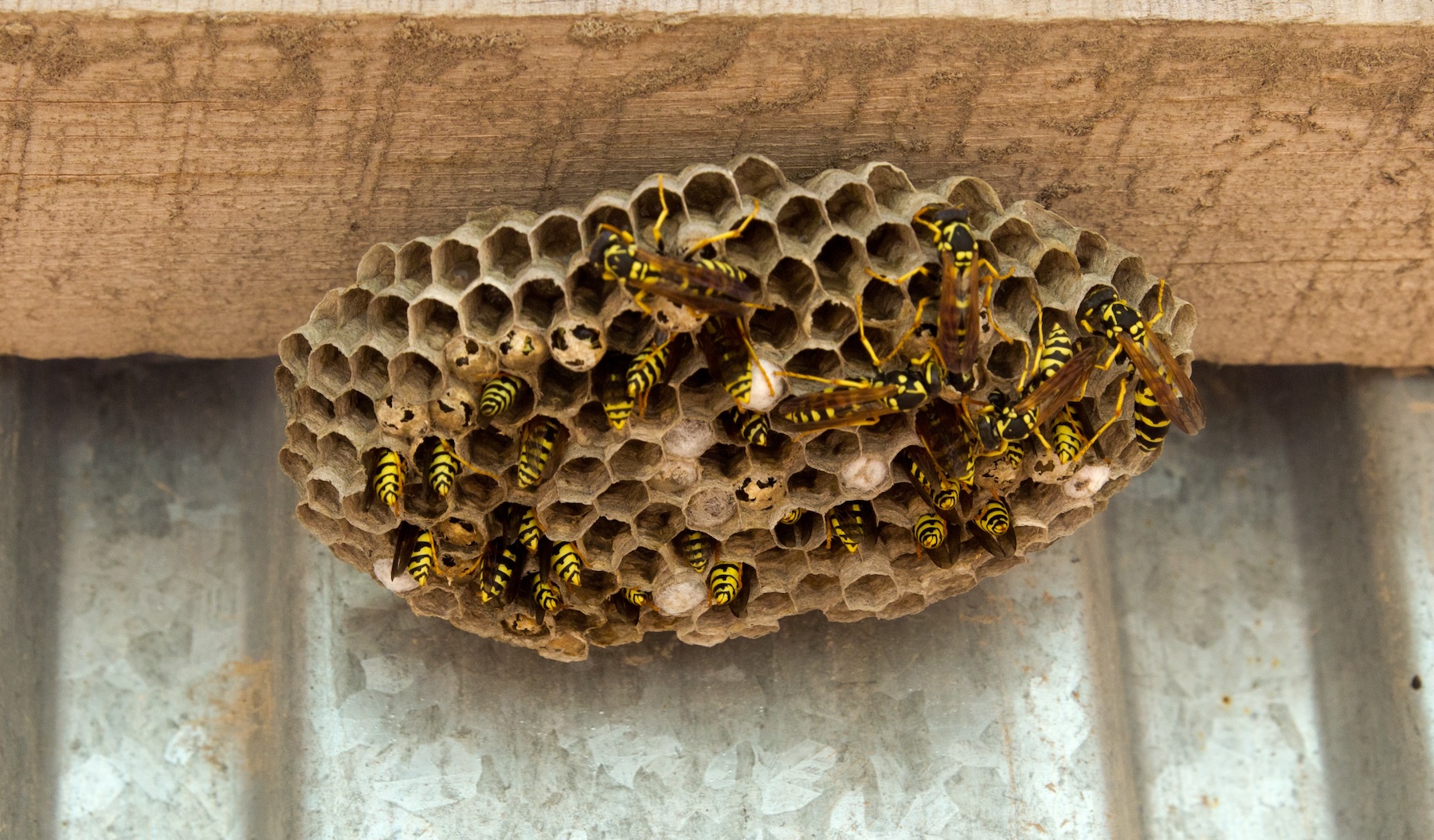
Stinging Insects 101: Identification, Prevention & Control
Stinging insects hanging around your property can put a major damper on outdoor fun. Some of the common stinging insects in New England include several types of wasps and bees. While there are other pests that can sting, these varieties are more likely to do so because they will defend their nests.
In this article, we’ll share some important information that you ought to know about stinging insects so that you can make wise choices for your property.
Jump to:
Identifying Stinging Insects
How to Get Rid of Wasps and Bees
How to Prevent Wasp Nests in New England
Choosing Pest Control in Southern NH, Southern Maine, and Northeastern MA
Identifying Stinging Insects
It’s easy to get different types of stinging insects mixed up. For instance, people commonly want to know things like the difference between a hornet and wasp. A hornet is actually a type of wasp. “Wasp” is a broad category, just like “bee.”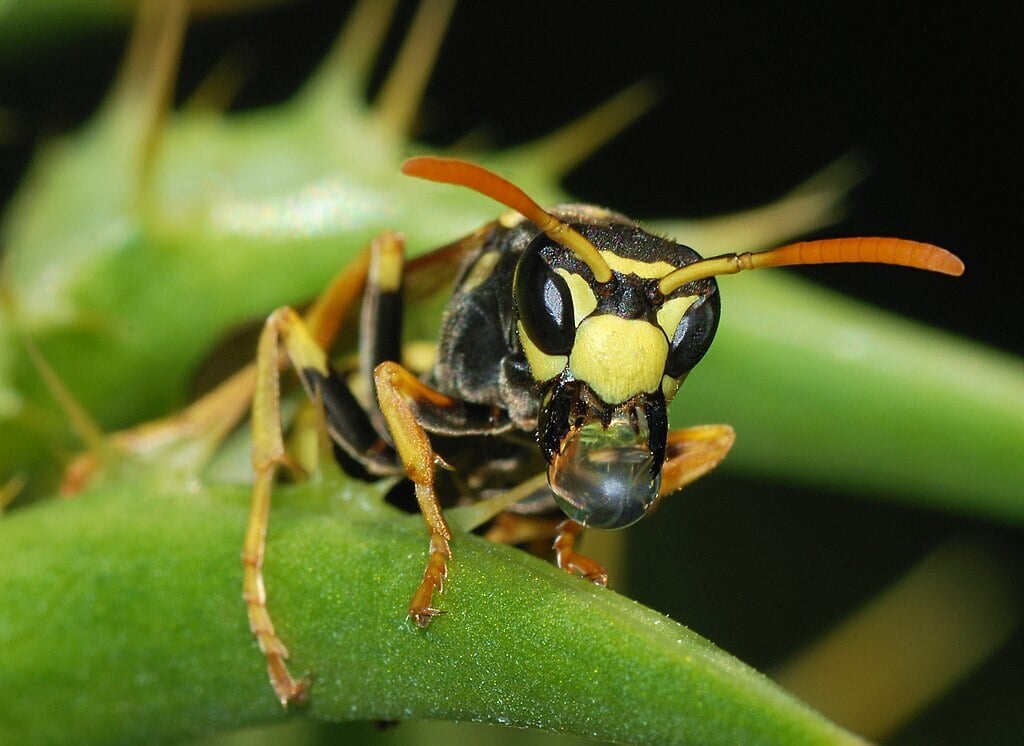
Let’s look at a few of the common wasps and bees here in New England.
Bees in New England
The Seacoast region is home to a variety of bees. In fact, scientists say we have more than 200 species of bees here in New England. Here are a couple of common examples.
- Bumblebees: New England is home to many species of Bumblebees including the Common Eastern Bumblebee and the Half-Black Bumblebee, among others. Bumblebees are known to be social creatures and they can even be friendly with humans. They are not aggressive and will only sting if they feel threatened and are defending their nest.
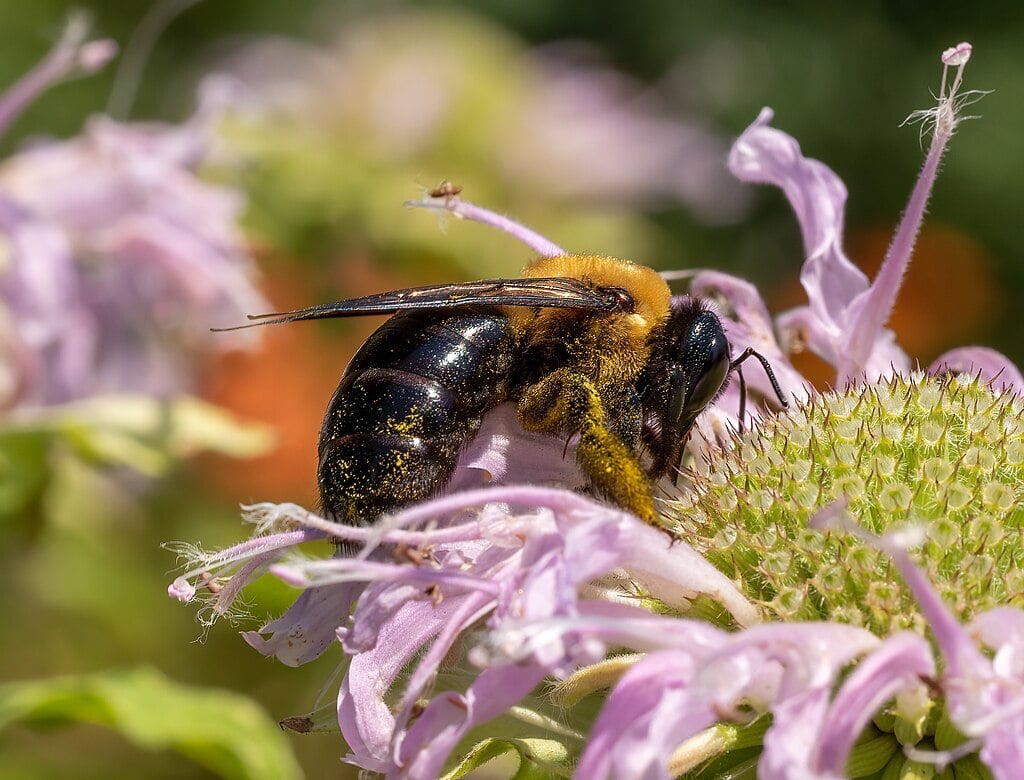
- Carpenter Bees: Though not social bees like bumblebees, carpenter bees do build their own nests typically by seeking out a wood structure. Carpenter bees can be a nuisance because of destroying wood in houses and decks during their nest building.
Wasps in New England
New England is also home to different types of wasps, many of which are social and build large nests for their colonies. Wasps tend to be more aggressive than bees in terms of stinging. Here are some examples.
- Yellow Jackets: Though often mistakenly called bees, yellow jackets are a type of wasp that happens to be very aggressive. They are not afraid to sting, even when unprovoked.
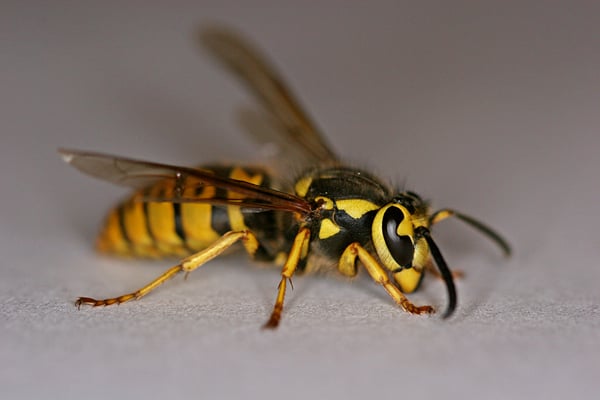
- Bald-Faced Hornet: This black-and-white hornet is even more aggressive than the yellow jacket! They have been known to swarm when they perceive a threat.
- Paper Wasp: Compared to the other two types of wasps mentioned, the paper wasp is not as aggressive. They get their name from the paper-like appearance of their nests.
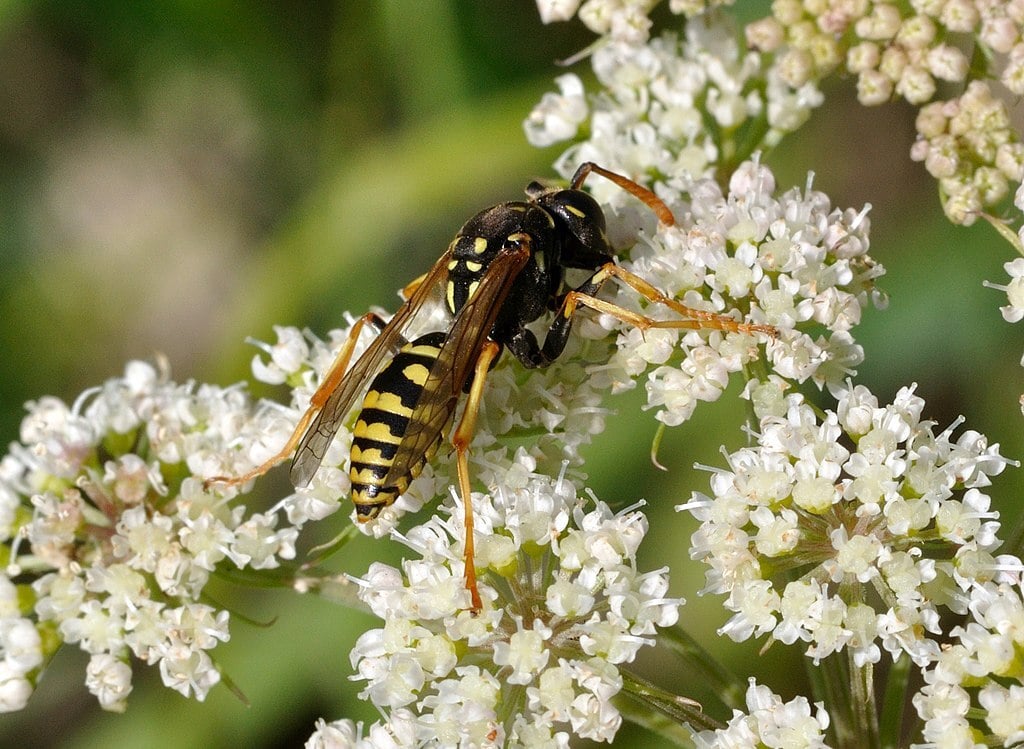
How to Get Rid of Wasps and Bees
If you have stinging insects on your New England property, we understand that you want solutions. It can be difficult to enjoy time outside when there is a threat of being stung by one of these creatures.
One of the first things you’ll need to take care of is safe removal of the nest. Because of the risks associated with being stung multiple times, this is a service that is best left to a professional. Safe wasp or bee nest removal is imperative.
At Seacoast Turf Care, we can often assist in the proper removal of nests. Every situation will be assessed on a case-by-case basis as location and height can come into play.
Going forward, you’ll also want to invest in Quarterly Pest Control for more effective, proactive wasp control in the future.
How to Prevent Wasp Nests in New England
Stinging insects can be opportunistic and look for any chance they have for a good location to build a nest. But there are still some steps you can take to try and prevent your home from being a target.
For one, food (especially the sweet, sticky kind) tends to be a major attractor of pests like wasps, so keep lids on garbage cans closed and don’t leave food lying around your yard (especially after an event like a picnic or BBQ). Thorough outdoor clean-up of food debris can go a long way.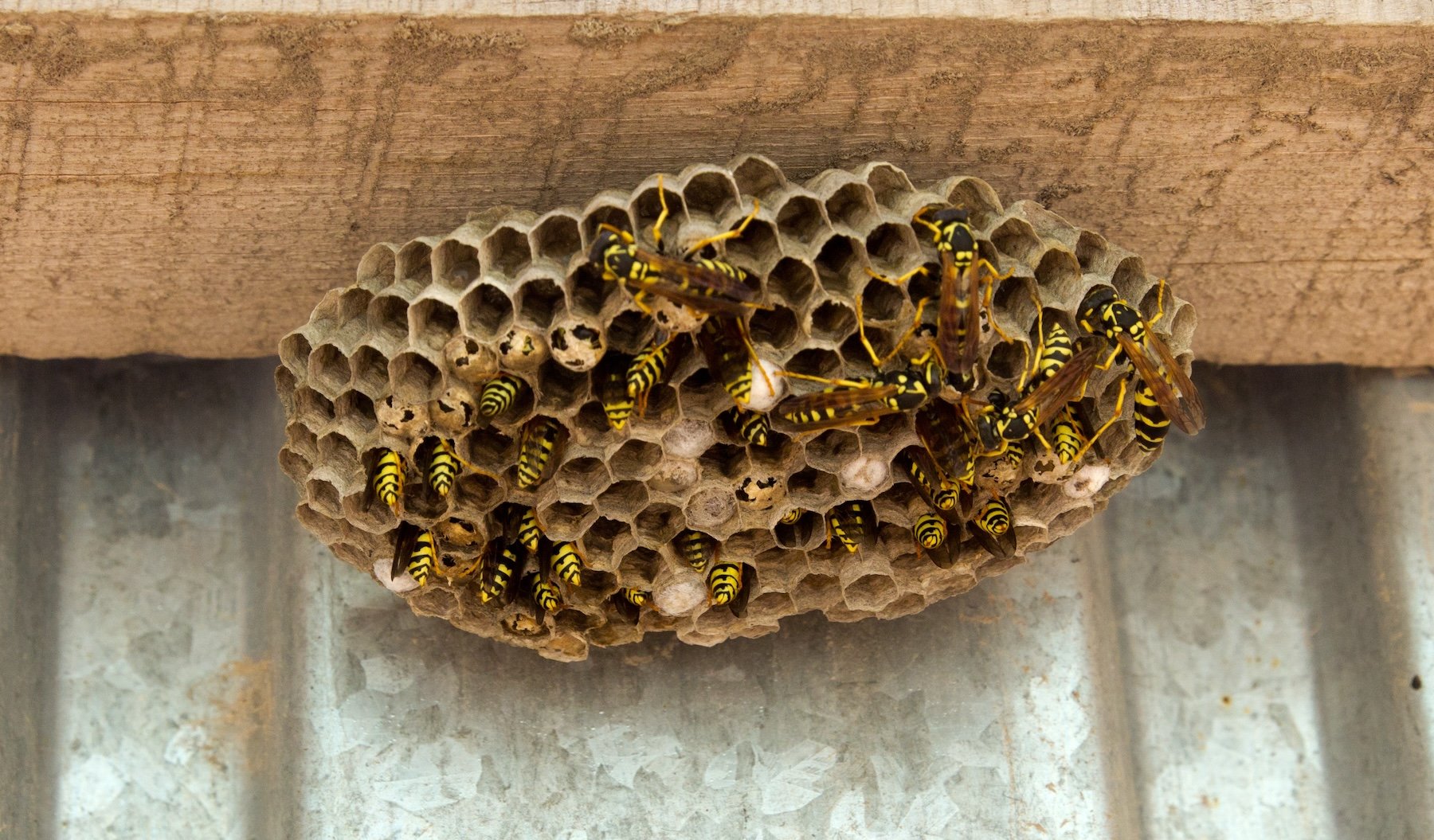
In addition, pests like wasps like to build their nests in places where they can “hide.” Trim away overgrowth and keep landscaping tidy to make your yard less inviting.
Along with that, investing in a Quarterly Pest Control program will also help keep pests away from your home with regular treatments that create a barrier around your home preventing them from ending up inside. That is the last place you want them to be!
Choosing Pest Control in Southern NH, Southern Maine, and Northeastern MA
Stinging insects are a major source of frustration. But your wise choice in pest control services means that you’ll be able to truly relax when spending time at home. You won’t have to constantly worry about what pests might be lurking.
The research that you put in ahead of time will pay off.
At Seacoast Turf Care, serving New Hampshire, Massachusetts, and Maine, our pest control services cover most of the common household pests - including stinging ones. It also covers mice.
If you truly want peace of mind that you’re keeping pests away, keeping them from getting inside is the best solution. Investing in regular professional pest control is a good step towards that goal. By taking the right steps, you’ll be able to get back to enjoying life how you deserve - pest-free.
Want to learn more about how pest control services can protect your family and give you peace of mind? At Seacoast Turf Care, we service towns throughout the Seacoast Region like Exeter, York, and Newburyport. Get pest control pricing for your Southern NH, Southern Maine, or Northeastern Massachusetts property.
Image Sources: wasp, carpenter bee, yellow jacket, paper wasp
